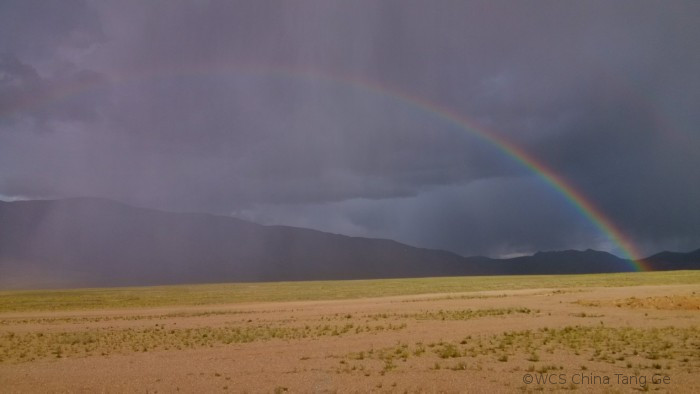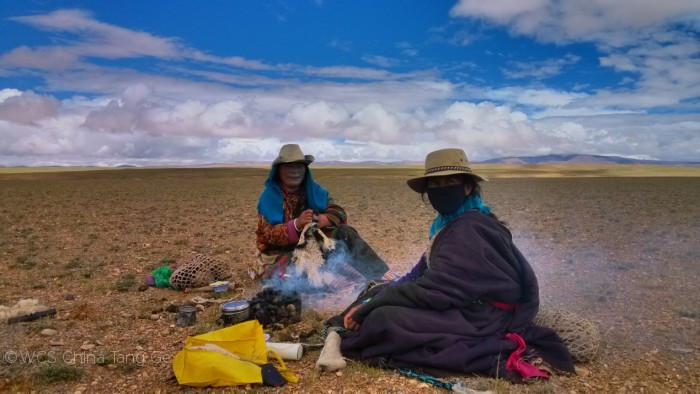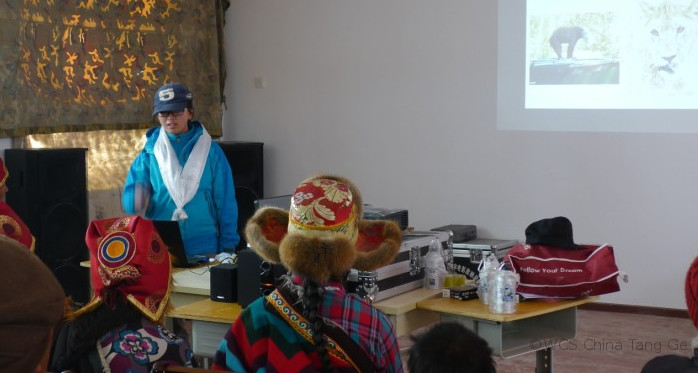Day 1
It was August 2013, when I first arrived in ChangTang as a volunteer of WCS China. As our car was approaching the grassland, the air smelled like different, with the cool breeze of snowy mountains and the brisk smell of the prairie. When I saw the first Tibetan antelope holding her magnificent horns proudly high and staring at us for a while, I felt I was living in a dream. This, was my first impression of ChangTang.

The ChangTang prairie ©WCS China Tang Ge
Day 2
The second day, for over 100km we did not see anyone between the blue sky and endless grassland. When two Tibetan women appeared in our view, we stopped and greeted them. They were sitting on the grass, quietly wowing wool, the butter tea boiling on the fire burning out of cow dung, and their sheep wandering nearby. Time seemed almost stopping over here, the scene freezing into a beautiful and peaceful picture. This, was my second impression of ChangTang.

Tibetan women ©WCS China Tang Ge
Day 3
Eventually, the third day in the late evening we arrived at our project site in Gumu village. The next day what I saw astonished me: a small river was flowing next to the village, with garbage dumped everywhere along the bank and even floating on the water. This was a sudden awakening from my dream. I started noticing garbage randomly disposed of on the grassland around the village. Indeed there was no dump where to collect and process trash in the village.
Traditionally, Tibetans respect nature, with its mountains and lakes, and are very cautious not to pollute lakes and water sources. They used to think unclean things offend nature’s spirits. However, nowadays as their life standard improves with modern goods entering their lives, packaging, batteries and chemicals are still left behind in the same way as biodegradable sheepskin and bones were in the past. They are not aware of the impact and harm these products have on nature and wildlife.
To instruct villagers on these dangers, we immediately organized an environmental education activity where they learned how to handle hazardous waste and minimize the impact of their new lifestyle on the pristine ecosystem of ChangTang. Government officers were also involved to attend the talk, and were sensitized on the need to build waste disposal facilities where garbage could be securely confined.

WCS China’s staff is conducting environmental education activity ©WCS China Tang Ge